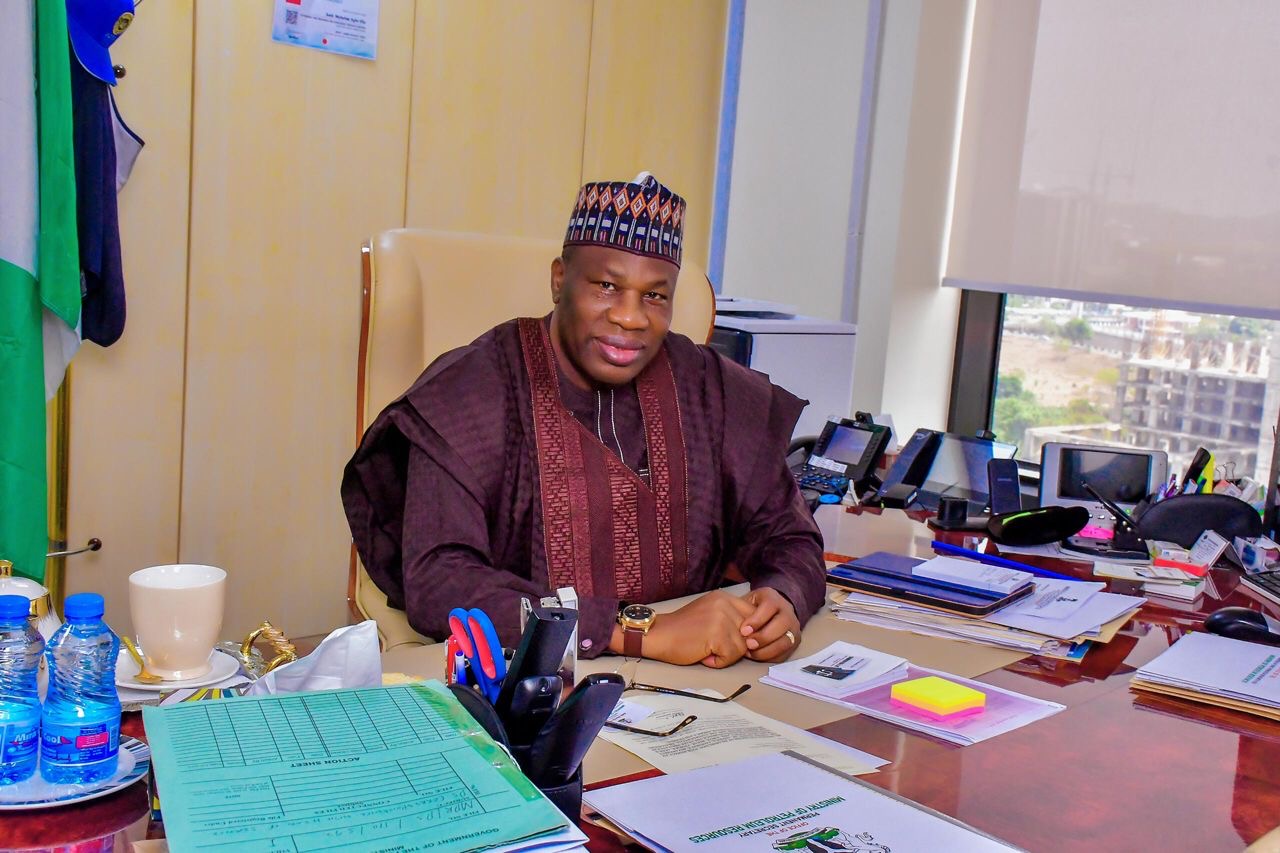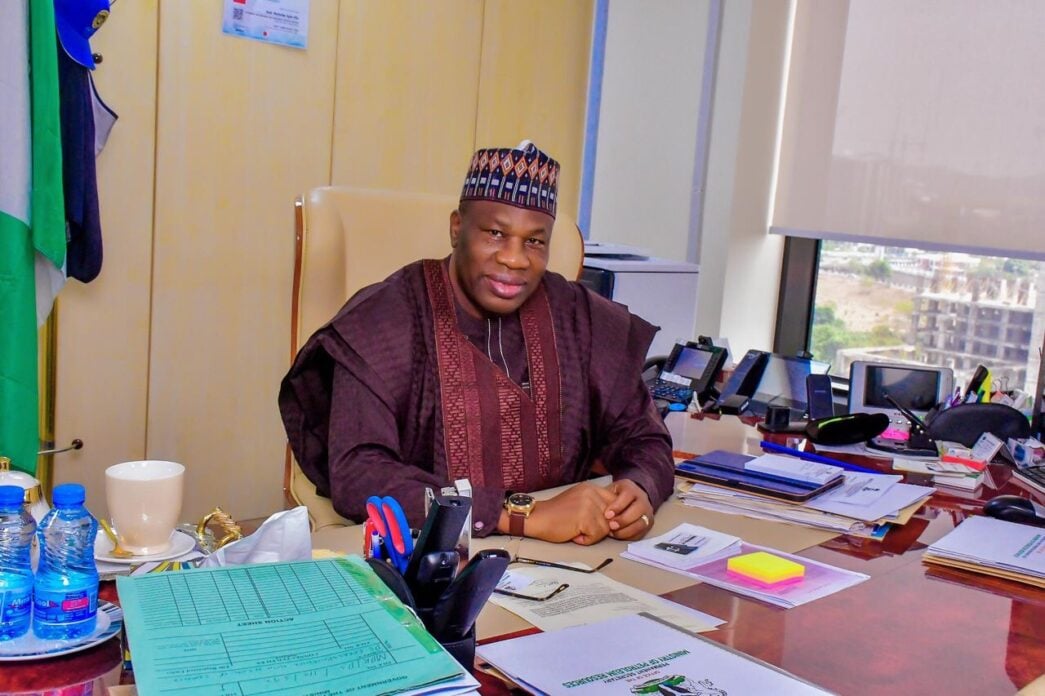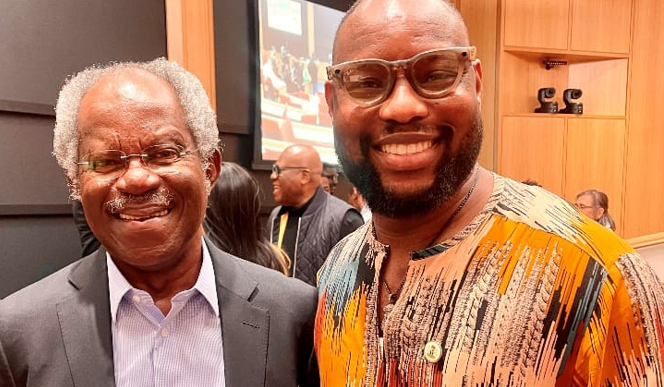Nicholas Agbo Ella
BY JOHN EJEKWONYILO AMEH
On 22 January, 2024, Ambassador Nicholas Agbo Ella poured over heaps of files in his new office on the ninth floor of the Nigerian National Petroleum Corporation (NNPC) towers in Abuja. The edifice which houses the ministry of petroleum resources, symbolises Nigeria’s leadership of the oil and gas industry on the African continent.
Ambassador Ella had just resumed duties as the permanent secretary of the ministry without any handover notes from his predecessor. However, the deadline for a crucial continental contest – the hosting right for the Africa Energy Bank (AEB) headquarters – was fast approaching. The $5 billion bank is a brainchild of the African Export-Import Bank (Afreximbank) and the African Petroleum Producers Organisation (APPO), an 18-member oil-producing organisation.
The deadline for submission of Nigeria’s comment expressing interest to bid for the hosting right of the AEB headquarters was midnight of 31 January, 2024.
Advertisement
Standing on the ninth floor of the 11-storey NNPC Towers, Amb. Ella pondered on the enormous task in front of him as he took office as the permanent secretary of the ministry after he was sworn-in by President Bola Tinubu in November 2023 at the Presidential Villa in Abuja.
As he ferreted about in the files, Ella stumbled on a letter from the APPO to Nigeria announcing the opening of the bidding process for the energy bank.
“On 28 January 2024, three days to the deadline for Nigeria to indicate its interest in hosting the AEB, I stumbled on the document announcing the bidding process,” he recalled at his 60th birthday in Abuja on Friday, April 11.
Advertisement
“There was no handover note when Ambassador Ella took office as Permanent Secretary of the Ministry. Of the many accomplishments during his stay in office, the story of the Africa Energy Bank cannot be written without him,” the director of planning, research and statistics at the ministry, Usman Abdulkadir, echoed the enormity of the task of clinching the hosting right of the energy bank headquarters, when he said it was an impossible dream.
Walking into a hostile work environment where his predecessor was reluctant in relinquishing the office, Ella toiled to acquaint himself with issues in the petroleum ministry in a bid to advance Nigeria’s policies in the energy industry.
To beat the deadline, he reached out to the solicitor-general of the federation and permanent secretary of the ministry of justice, Beatrice Jeddy-Agba, who got the legal instrument for Nigeria’s interest ready a day before the deadline.
“I reached for my phone and called the Solicitor-General of the Federation and Permanent Secretary of the Ministry of Justice, Beatrice Jeddy-Agba, who got the legal instrument ready against all odds. By 11:30 p.m, on 31 January 2024, we put Nigeria’s comment for the bid,” Ambassador recalled to the applause of staffers and guests at a valedictory ceremony marking his exit from the federal civil service of the federation on 11 April. That was one of the several criteria for the bidding process.
Advertisement
Subsequently, Nigeria, a founding member of APPO since 1987, went on to pay the subscription fee of $83 million, which was later increased to $100 million, effectively brightening her chances of a successful bidding process. Also, the federal government was to sign and ratify the establishment agreement for the citing of the bank in Nigeria as well as identify the bank’s headquarters’ building and provide a piece of land for the bank’s permanent headquarters.
NIGERIA’S BID: STRATEGIC POSITIONING AND DIPLOMATIC ENGAGEMENT
While the preliminary issues were being addressed, the country faced the daunting task of lobbying other APPO member states for support against Ghana, Algeria and Benin Republic, after South Africa and Ivory Coast failed to meet the criteria for the hosting of the AEB.
Relying on his over three-decades foreign service experience, Mr Ella, a lawyer, unsuccessfully sought ministerial approval to deploy a special envoy to lobby APPO member countries.
Advertisement
Nigeria’s journey to securing the AEB headquarters was characterised by a series of strategic diplomatic engagements, negotiations, and lobbying efforts led by the ministry of petroleum resources. As the largest oil producer in Africa, Nigeria holds a significant position in the global energy market and has consistently advocated for the development of Africa’s energy sector. The country’s bid to host the AEB was seen as a natural step, aligning with its broader goals of promoting local content, increasing investments in the oil and gas sector, and advancing energy transition initiatives.
Ambassador Ella, who currently chairs the executive board of the Gas Exporting Countries Forum (GECF), headquartered in Doha, Qatar, spearheaded Nigeria’s bid, drawing on his extensive experience in diplomacy and relationships with key players in the energy sector across the continent.
Advertisement
The ministry utilised diplomatic channels to reach out to APPO member states, leveraging Nigeria’s long-standing relationships with other oil-producing countries and emphasising the nation’s track record in managing energy resources, infrastructure, and financial institutions.
Nigeria’s bid was further strengthened by its demonstrated commitment to energy sector reforms, particularly the enactment of the Petroleum Industry Act (PIA), which provided a regulatory framework for the oil and gas industry, emphasising transparency, efficiency, and the development of midstream and downstream sectors. The PIA’s provisions for the establishment of the ministry of petroleum incorporated (MOPI) and restructuring of NNPC Limited also underscored Nigeria’s readiness to host a major financial institution such as the AEB, with assurances of robust regulatory support and a favourable investment climate.
Advertisement
THE MINISTRY OF PETROLEUM RESOURCES’ ROLE IN WINNING THE BID
The ministry’s role in securing the AEB headquarters for Nigeria extended beyond diplomatic engagement. The miinistry orchestrated a comprehensive bid strategy, a move the immediate-past director (upstream) at the ministry, Engineer Kamoru Busari, lauded Ambassador Ella for at the valedictory ceremony.
Advertisement
The ministry submitted a detailed proposal to APPO that highlighted Abuja’s strategic advantages as a central location in West Africa, offering accessibility and connectivity to other African nations. The proposal also outlined Nigeria’s energy policies, legal frameworks, and the benefits of situating the bank in a country with a rich energy infrastructure and a skilled workforce. The ministry emphasised Nigeria’s experience in hosting international institutions and events, reinforcing its capability to provide the necessary logistical and administrative support for the AEB.
Nigeria, through the ministry of petroleum resources, engaged in extensive lobbying efforts during APPO ministerial meetings and bilateral engagements. This included hosting high-level delegations and organising engagements that focused on the benefits of the AEB to Africa’s energy landscape, thereby garnering support from influential member states. The ministry’s diplomatic manoeuvres included collaboration with the ministry of foreign affairs to ensure that Nigeria’s interests were well-articulated in regional discussions.
The ministry of petroleum resources also emphasised Nigeria’s push towards energy transition, highlighting initiatives such as the Decade of Gas, which aims to harness gas resources as a transitional fuel for sustainable energy. The AEB’s role in financing energy projects was linked to supporting regional energy security and ensuring a just transition for African economies. Nigeria’s local content policy, which promotes indigenous participation in the oil and gas industry, was also presented as a model that could be scaled up through the activities of the AEB.
The ministry demonstrated Nigeria’s political commitment by securing the endorsement of President Ahmed Bola Tinubu, who underscored the strategic importance of hosting the AEB for Nigeria and Africa. The president’s support, combined with the ministry’s efforts, sent a strong signal of Nigeria’s resolve to lead in energy financing and policy formulation on the continent.
NIGERIA’S VICTORY AND ITS SIGNIFICANCE
In July 2024, APPO member states granted Nigeria the mandate to host the AEB Headquarters in Abuja. This victory represents more than just a symbolic achievement; it holds substantial implications for Nigeria, Africa, and the global energy sector.
Hosting the AEB headquarters in Abuja solidifies Nigeria’s status as a central player in Africa’s energy sector. It enhances Nigeria’s attractiveness as a destination for energy investments and provides the country with an opportunity to influence energy policies at a continental level.
The establishment of the AEB in Nigeria is expected to create jobs, boost local businesses, and stimulate economic activities, particularly in sectors linked to energy finance and consultancy. The presence of a major financial institution will attract international companies and experts to Nigeria, leading to knowledge transfer and capacity building.
The AEB’s role in financing sustainable energy projects aligns with Nigeria’s Decade of Gas initiative and broader energy transition plans. Access to financing will enable the country to pursue renewable energy projects and gas infrastructure development, facilitating a move towards a cleaner energy mix.
SIGNIFICANCE FOR AFRICA
The AEB is poised to play a crucial role in financing projects that enhance energy access across Africa, such as oil and gas infrastructure, renewable energy plants, and electricity transmission networks. This will contribute to regional energy security and support economic integration.
The bank will provide a platform for African countries to collaborate on energy projects, leading to increased intra-African trade in energy commodities and services. It will also serve as a vehicle for channelling investments into the energy sector, thereby addressing funding gaps that have traditionally hindered energy development on the continent.
The financing provided by the AEB will contribute to the achievement of the SDGs by promoting affordable and clean energy (Goal 7) and fostering economic growth and infrastructure development (Goal 9). The bank’s focus on sustainable energy projects will help Africa transition to a low-carbon future, in line with global climate commitments.
Commending Ambassador Ella’s stewardship at the Ministry, the chairman of the National Gas Expansion Programme (NGEP), Mohammed Ibrahim, a professor, noted that the former vigorously championed the federal government’s gas utilisation programme amongst rural communities in Nigeria as a cleaner energy source for cooking and industrialisation.
THE ROAD AHEAD
With Nigeria’s successful bid to host the AEB headquarters, the ministry of petroleum resources is now tasked with ensuring the smooth establishment and operationalisation of the bank. This involves facilitating the necessary infrastructure, securing legal and regulatory frameworks, and coordinating with APPO and other stakeholders to ensure that the bank’s objectives are met.
The ministry will also continue to play a pivotal role in mobilising resources, driving energy policies, and supporting the AEB’s efforts in providing financial solutions tailored to Africa’s unique energy challenges. As the host country, Nigeria is expected to set the pace in promoting the AEB’s mission and ensuring that the bank serves as a catalyst for the continent’s energy development and economic growth.
The decision to establish the African Energy Bank’s headquarters in Abuja marks a historic achievement for Nigeria and a significant leap forward for Africa’s energy sector. It reflects Nigeria’s enduring influence and leadership in energy matters, and it affirms the continent’s collective aspiration for energy security and sustainable development. As Nigeria takes on the mantle of hosting the AEB, the ministry of petroleum resources will undoubtedly continue to champion initiatives that drive the continent towards a prosperous and energy-secure future. The establishment of the AEB will serve as a cornerstone in Africa’s journey towards harnessing its energy potential, creating economic opportunities, and transforming the lives of its people.
The submissions of the APPO secretary-general, Dr Omar Farouk Ibrahim, at the Africa Energy Week held in Cape Town, South Africa in November 2024 and the recently held Nigeria International Energy Summit (NIES) in Abuja eloquently captures the determination of the continent to tackle the challenges of – financing oil and gas projects, technology and creating alternative markets for Africa’s oil and gas.
Views expressed by contributors are strictly personal and not of TheCable.









